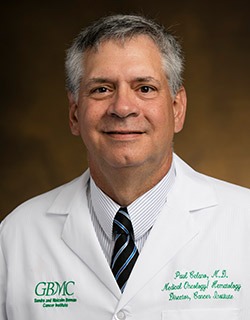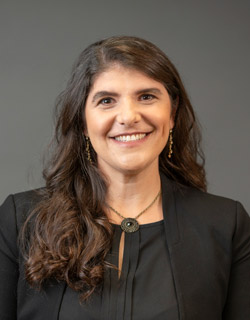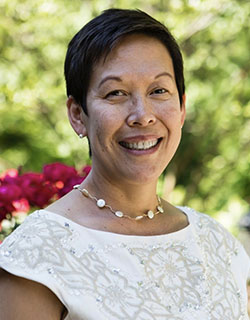A Vaccine that Prevents Cancer Needs More Physician Advocates
March 6, 2018
Exploring the Benefits and Misconceptions of the HPV Vaccine
The number of human papillomavirus (HPV)-related cancer cases continues to rise in the United States, despite a vaccine that can prevent most cancers associated with the virus. The Centers for Disease Control and Prevention (CDC) estimates that more than 90 percent of sexually active men, and more than 80 percent of sexually active women, will be infected with at least one type of HPV at some point in their lives. About half of these infections are with a high-risk HPV type such as 16 and 18, which cause 63 percent of all HPV-associated cancers in the United States.
HPV-related cancer, however, can be prevented with the HPV vaccine, which has been available for more than a decade.
Because there is no cure for the virus itself, the best way to fight HPV is to be vaccinated before becoming sexually active. Theresa Nguyen, MD, Vice Chair of Pediatrics at GBMC, said that the HPV vaccine can be given between the ages of 9 to 26 years in females and males. “The American Academy of Pediatrics recommends that the HPV vaccine be administered at 11 or 12 years of age, when the immune response is the best.”
The CDC estimates that the HPV vaccine can prevent an estimated 29,000 new cancers per year. Yet, some parents remain leery about the vaccine due in part to a lack of education and reliable information about its cancer prevention benefits.
The Importance of the HPV Vaccine
“There are about 15 oncogenic types of the HPV virus,” explained Kimberly Levinson, MD, Associate Director of Gynecologic Oncology at GBMC during a recent Facebook Live interview. “About 70 percent of cervical cancer is caused by just two types of HPV, and about seven types of HPV account for more than 90 percent of cervical cancers. The vaccine we have available today is a 9-valent vaccine, covering nine types of HPV. Realistically, we have the ability to eliminate HPV and its associated diseases with the preventive vaccine.”
According to Paul Celano, MD, FACP, FASCO, Herman and Walter Samuelson Medical Director of the Sandra and Malcolm Berman Cancer Institute, the HPV vaccine is one of the few established vaccines known to prevent cancer. “It’s extremely important that people take advantage of this vaccine. Each year 13,000 people are diagnosed with cervical cancer and more than 4,000 women die from the disease annually. Virtually every cervical cancer case is associated with the HPV virus,” he said.
“It’s not only about cervical cancer, but HPV is also associated with vulvar, vaginal, anal, penile, and oral pharyngeal cancers,” Dr. Celano added.
Understanding Misconceptions and Benefits of the HPV Vaccine
As effective as this vaccine is, Dr. Nguyen said that some parents are concerned about its long-term health effects and safety, sometimes declining to have their children vaccinated.
“Some common misconceptions about the HPV vaccine are that it encourages sexual activity, can cause premature ovarian failure [and hence sterility], paralysis, and even death. None of these claims, however, have been confirmed through evidence-based science.”
“The HPV vaccine is incredibly important,” she stressed. “The vaccine protects against HPV infections that are associated with cervical cancer, anal cancer, and throat cancer. It also protects against HPV infections that cause genital warts. Hence, it is most effective if given before sexual activity.”
How Physicians Can Help Improve HPV Vaccination Rates
“As physicians, we need to emphasize the long-term, proven health benefits of the HPV vaccine and help parents understand that they can potentially prevent cancer in their child with this vaccine,” Dr. Celano said.
Dr. Nguyen agreed, adding, “We can improve our vaccination rates in adolescents by encouraging immunizations during sick visits as well as annual physicals. Physicians need to build strong rapport and trusting relationships with families to facilitate discussions of potentially controversial vaccines.”





